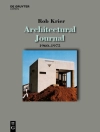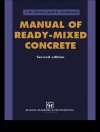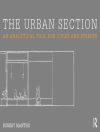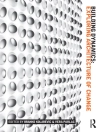Urbanizing Suburbia considers three current and related processes underway in global cities: the hyper-gentrification of inner cities, the financialization of housing, and the structural changes occurring in the outer city. Rocketing housing prices have displaced residents from inner cities and created a rent gap in outer cities. Increasingly, municipalities, developers, and displaced residents search for opportunities in the suburban belts. Changes in demographics, densities, live/work ratios, and tenures are remaking outer cities, rendering them less and less suburban. The book examines these changes by looking at four key European cities: Amsterdam, Berlin, London, and Stockholm. It is a first attempt at understanding the three processes discussed here within one comprehensive explanatory framework.
Despre autor
Thal Kaminer ist Dozent (Reader) für Architekturgeschichte und -theorie an der Universität Cardiff. Er ist Autor von
The Efficacy of Architecture (2017) und
Architecture, Crisis and Resuscitation (2011) sowie Herausgeber der Sammelbände
Urban Asymmetries (2011),
Critical Tools (2011) und
Houses in Transformation (2008).
Leonard Ma ist ein kanadischer Architekt mit Sitz in Helsinki. Er ist Mitglied der New Academy und lehrt Urbanistik und Architektur an der Estonian Academy of Art. Seine Forschung konzentriert sich auf Neoliberalismus, Finanzialisierung und das Erbe des Wohlfahrtsstaates und wurde in e-flux architecture, The Avery Review, Drawing Matter und AA files veröffentlicht. Leonard ist praktizierender Architekt und leitet das Büro PUBLIC OFFICE, das Projekte und Wettbewerbspreise in Österreich, Finnland, Japan und Schweden gewonnen hat.
Helen Runting ist Planerin und Architekturtheoretikerin sowie Gründungspartnerin des Stockholmer Architekturbüros Secretary. Sie hat im Bereich Critical Studies in Architecture (KTH) promoviert und veröffentlicht regelmäßig Essays über die Politik des Designs. Runting ist Mitautorin des preisgekrönten Buches 14, 495 Flats: A Metabolist’s Guide to New Stockholm (2021) und Mitherausgeberin des Sammelbandes Architecture and Feminisms: Ecologies, Economies, Technologies (2018).












